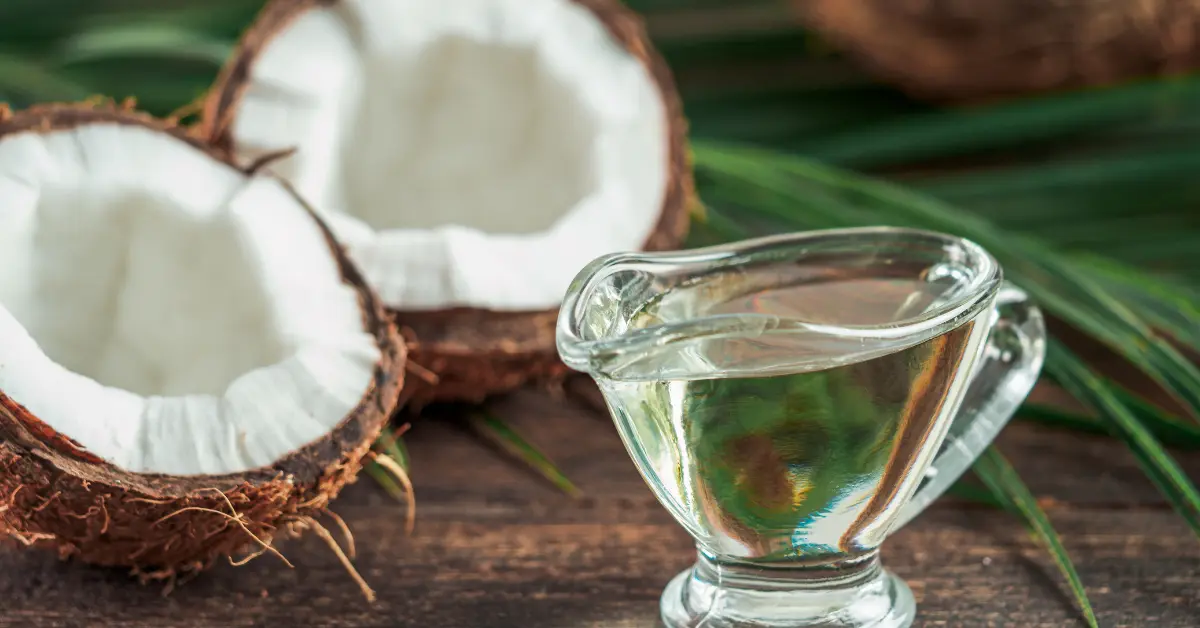Find Out: Is Coconut Oil Bad for Your Hair?
Coconut oil has been used for ages, with many claims being made about its health benefits and uses.
It has been highly praised for its potential benefits in caring for our hair because of its antimicrobial and anti-inflammatory properties.
Some consider it a miracle product, but others may doubt its effectiveness.
Can Coconut oil harm your hair? Is Coconut oil bad for your hair?
So, let’s explore the science behind it and separate the facts from the misconceptions.
Weighing the benefits and drawbacks of Coconut oil
There has been a lot of research on the effectiveness of coconut oil.
A Research was done in 2012 to measure the penetration properties of coconut oil.
It showed that coconut oil can penetrate hair strands, which helps to reduce protein loss and increase shine.
Another research confirms that coconut oil-wash cycles help reduce hair damage by 30%, compared to hair treatments, such as shampoos and conditioners.
Hence, Coconut oil is considered safe for your hair generally.
However, using it too much may harm your hair, leading to a buildup of oil on the scalp.
This can result in greasy, heavy hair and may also result in flakiness.
Coconut oil is also rich in Lauric acid, which makes it water-repellent, and hair is made up of Keratin, a protein.
This protein has Amino acids as the building blocks.
Hence, if you have any broken strands or proteins, Coconut oil may be unable to help you.
Advantages of coconut oil on hair
Coconut oil has a wide range of uses and can be used in various ways.
It includes cooking, skin care, massage oil, natural lubricant, and hair care.
The potential benefits of coconut oil on hair are as follows.
Deep moisturization

Coconut oil has excellent moisturizing properties.
It can penetrate into the hair shaft and helps to restore and retain moisture.
Protein retention
Coconut oil helps reduce protein loss in hair, as it contains lauric acid at a concentration of about 45%-53%.
Lauric acid has a high affinity for protein.
It is an interesting component of coconut oil that exhibits some antimicrobial properties.
Hair growth promotion
Coconut oil has properties that help to nourish the hair follicles.
It can also improve blood circulation and protect against damage.
Split end prevention
Coconut oil’s moisturizing properties can help prevent split ends by nourishing and strengthening the hair strands.
It contains natural antioxidants, such as vitamin E, which can help protect hair from damage caused by free radicals.
Tips for the usage of coconut oil
Here are some tips to help you use coconut oil for its maximum benefits.
Hair type consideration
It is important to consider your hair type before using coconut oil.
People with thick, dry, or damaged hair may benefit from regular use.
On the other hand, individuals with acceptable or low-porosity hair should use it sparingly or consider lighter alternatives.
Proper application
The way you apply coconut oil can have an impact on how beneficial it is.
Start with a small amount of coconut oil and apply it to the mid-lengths and ends of your hair.
Focus on the areas that need the most moisture.
Avoid overuse

Overusing any hair product might lead to more damage than benefits.
Therefore, using coconut oil in moderation is vital in preventing greasiness and buildup.
Experiment with different amounts and frequencies to find the right balance for your hair.
Dilution with lighter Oils
If you find coconut oil too heavy for your hair, consider diluting it with lighter oils.
You can pick any carrier oil, such as almond, jojoba, or grapeseed oil.
Things to consider
Given below are some things you should consider before applying coconut oil to your hair.
- Coconut oil may not suit everyone, especially those with fine hair
- Although rare, some individuals might be allergic to coconut oil
- It is recommended to perform a patch test before using coconut oil on your hair to check for any adverse reactions
Conclusion
Coconut oil offers several advantages for hair care.
This includes deep moisturization, protein retention, potential hair growth stimulation, and split-end prevention.
However, it may not suit all hair types and can present challenges in application and removal.
When used appropriately, coconut oil can be a valuable addition to your hair care regimen.
Frequently Asked Questions
Can coconut oil dry out your hair?
Yes, coconut oil dries out your hair. For individuals with fine or low-porosity hair, coconut oil might be too heavy and can potentially lead to dryness or buildup. Conducting a patch test and observing how your hair reacts before using coconut oil extensively is advisable.
Is it better to put coconut oil in your hair when it’s wet or dry?
When used as a pre-shampoo treatment or deep conditioner, applying coconut oil to dry hair before washing can allow it to penetrate the strands more effectively. If you’re looking for a light leave-in conditioner for frizz control, applying a small amount of coconut oil to wet hair can help seal in moisture.
Should I leave coconut oil in my hair or wash it out?
Leaving allows the oil to nourish the hair deeply. However, others may find that leaving it in for an extended period leads to greasiness or buildup. If you’re uncertain, it’s recommended to start with a shorter duration and gradually increase the time as you observe how your hair responds.
Can too much coconut oil damage hair?
Yes, an excessive amount of coconut oil, particularly if your hair doesn’t respond well to it, can result in buildup and make your hair feel greasy or heavy. Moreover, individuals with fine or low-porosity hair may experience dryness or weightlessness from using too much coconut oil.
WowRx uses only high-quality sources while writing our articles. Please read our content information policy to know more about how we keep our content reliable and trustworthy.






